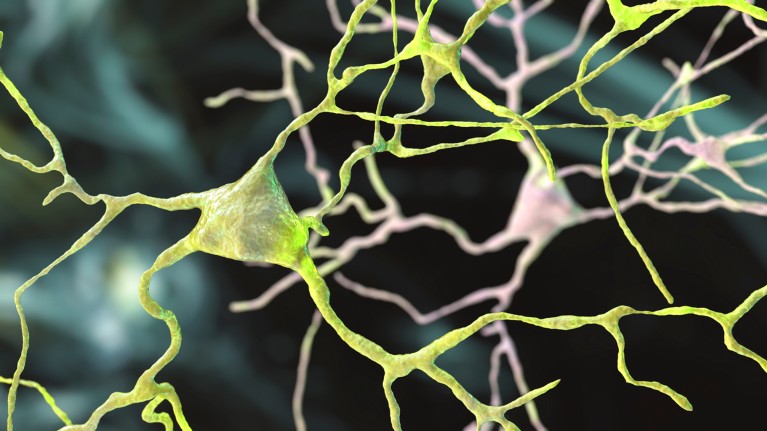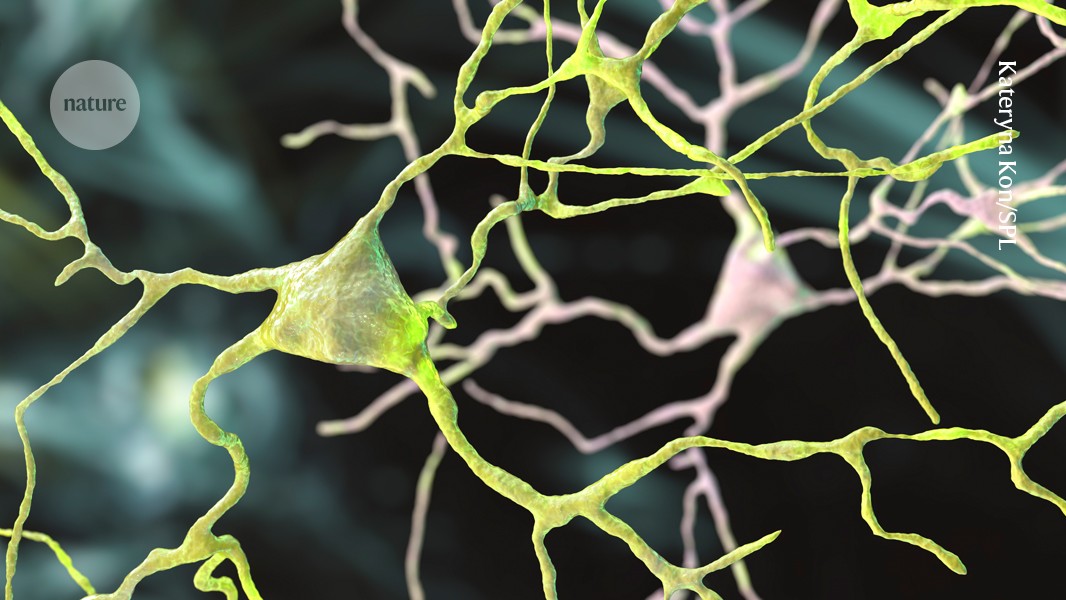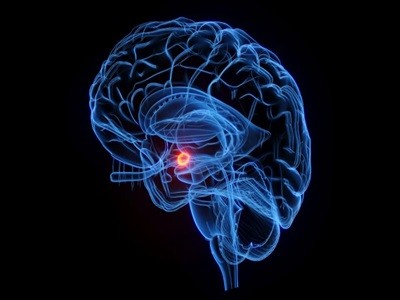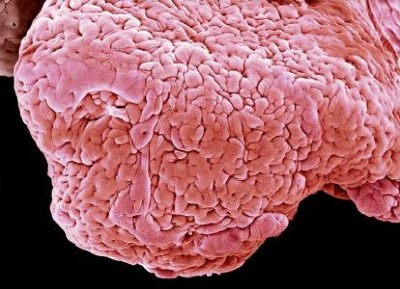
Neurons (artist’s illustration) in the brain region called the amygdala send signals that influence decision-making after chronic stress.Credit: Kateryna Kon/Science Photo Library
Scientists have found two ‘dials’ in the brain that help to explain how chronic stress hijacks decision-making1.
How the stressed-out brain can weaken the immune system
The discovery is based on experiments in mice and will therefore need to be confirmed in humans. But it shows that prolonged stress dials back deliberate decision-making while also boosting an ‘autopilot’ mode in the brain that favours rigid, habitual behaviours.
It’s long been known that humans who face chronic stress are prone to resort to a habit, such as smoking a cigarette or eating junk food, rather than make a well-thought-out decision. The work, reported today in Nature, uncovers a biological mechanism for how stress puts its finger on the scale in favour of routine, scientists say.
“It’s really a major achievement,” says Kyle Smith, a neuroscientist at Dartmouth University in Hanover, New Hampshire, who was not involved in the study. The process described “is probably not the only way in which stress increases habit formation, but it really nails down one way”.
Stressful studies
Study author Jacqueline Giovanniello’s interest in stress was piqued by her experience as a student, when she juggled three jobs and a full course load at university. “Something that really interested me was how these stressful experiences change your brain,” says Giovanniello, a neuroscientist now at Temple University in Philadelphia, Pennsylvania.
To study these changes, she and her colleagues exposed mice to an assortment of mild stressors, including damp bedding and white noise. Alongside a control group of hungry but unstressed mice, those that were both hungry and stressed learnt to press a lever to receive a treat of tasty pellets.
Chronic stress can inflame the gut — now scientists know why
The scientists then tested all of the animals’ ability to make flexible decisions — which, for humans, means that you “think about the consequences of your behaviour and use that information to decide what to do”, says study co-author Kate Wassum, a behavioural neuroscientist at the University of California, Los Angeles. The alternative is to fall back on habit, “an automatic, almost unconscious reflex to keep doing what you did before”, Smith says.
To test whether the animals were behaving habitually, the scientists gave the mice a hefty serving of pellets. Then, the animals were given the chance to once again press the lever. The unstressed mice that had filled up with pellets didn’t bother much with the lever — an example of their ability to make purposeful decisions, the authors say. But the stressed mice that were full kept pressing the lever many times per minute, a behaviour that is more automatic than goal-driven, the researchers add.




